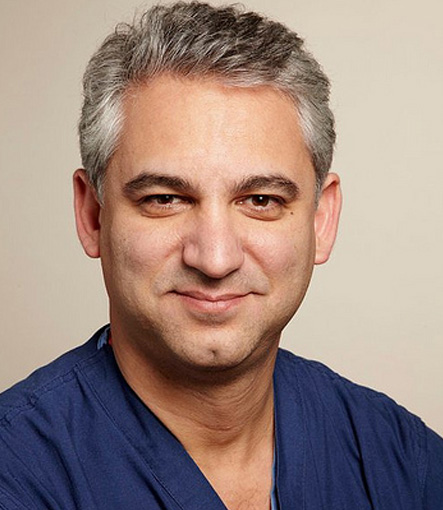Metformin Restricts Spread Of Benign Prostatic Epithelial Cells- Dr. David Samadi
NEW YORK, NEW YORK (PRWEB) MARCH 08, 2017
A recent study published in the online publication of PLoS One found that the diabetes drug metformin controls the spread of benign prostatic epithelial cells by suppressing the expression of IGF-1R and IGF-1 secretion. This finding could have significant clinical implications in managing patients with benign prostatic hyperplasia (BPH) with the drug metformin.
Metformin is an oral diabetes medication that helps control blood sugar levels in people with type 2 diabetes. BPH is the most common condition affecting the prostate gland and is common in older men. About half of all men between the ages of 51 and 60 have BPH with up to 90% of all men over the age of 80 having it. BPH is a non-cancerous enlargement of the prostate gland that can press down on the urethra and is associated with issues such as inability to completely empty the bladder, dribbling, or frequent nighttime urination. Even though BPH is not cancer, BPH and prostate cancer can occur at the same time.
“It has been known for a while that there is a link between men with elevated insulin levels and having a greater likelihood of BPH,” said Dr. David Samadi. “We know that insulin resistance can affect the growth and regulation of gene expression and BPH. The reason for the association between hyperinsulinemia and BPH involves two insulin-like growth factors, IGF-1 and IGF-2.”
In this current study, it has been shown through previous studies that diabetes significantly increases a man’s risk of developing BPH. But it was not known whether anti-diabetic medications were useful in preventing this development. From past studies, it had been found that stromally expressed IGF-1 promoted benign prostatic epithelial cells to proliferate.
“The study from Plos One wanted to find out if the diabetes medication metformin often used for type 2 diabetes would actually stop the spread of these epithelial cells by reducing IGF-1,” stated Dr. Samadi.
Researchers cultured and tested the cell lines of BPH-1 and P69, murine fibroblasts 3T3 and primary human prostatic fibroblasts. Results found that metformin was able to significantly inhibit the proliferation of BPH-1 and P69 cells in a dose-dependent and time-dependent manner.
“This study found that when metformin was used for 24 hours it lowered the G2/M cell population by 43.24% in P69 and 24.22% in BPH-1 cells. What was also interesting that was found was that IGF-1 increased the number of G2/M cells in P69 cells and in BPH-1 cells thus enhancing IGF-1 in benign prostatic epithelial cells,” explained Dr. Samadi. “But the important thing is that metformin stopped the spread of the cells by inhibiting IGF-1.”
“To me this points to the fact that for men whether they have either pre-diabetes or type 2 diabetes or even if they don’t, metformin could be a possible useful tool in reducing the growth of the prostate gland in BPH,” said Dr. Samadi. “We know that as a man ages, his risk for BPH and diabetes both increase. By keeping good tabs on a man’s overall health conditions and lab results, we can better control and manage BPH resulting in a better quality of life for men in reducing the symptoms of BPH.”
Patients newly diagnosed with prostate cancer can contact world renowned prostate cancer surgeon and urologic oncologist, Dr. David Samadi, for a free phone consultation and to learn more about prostate cancer risk, call 212-365-5000.






